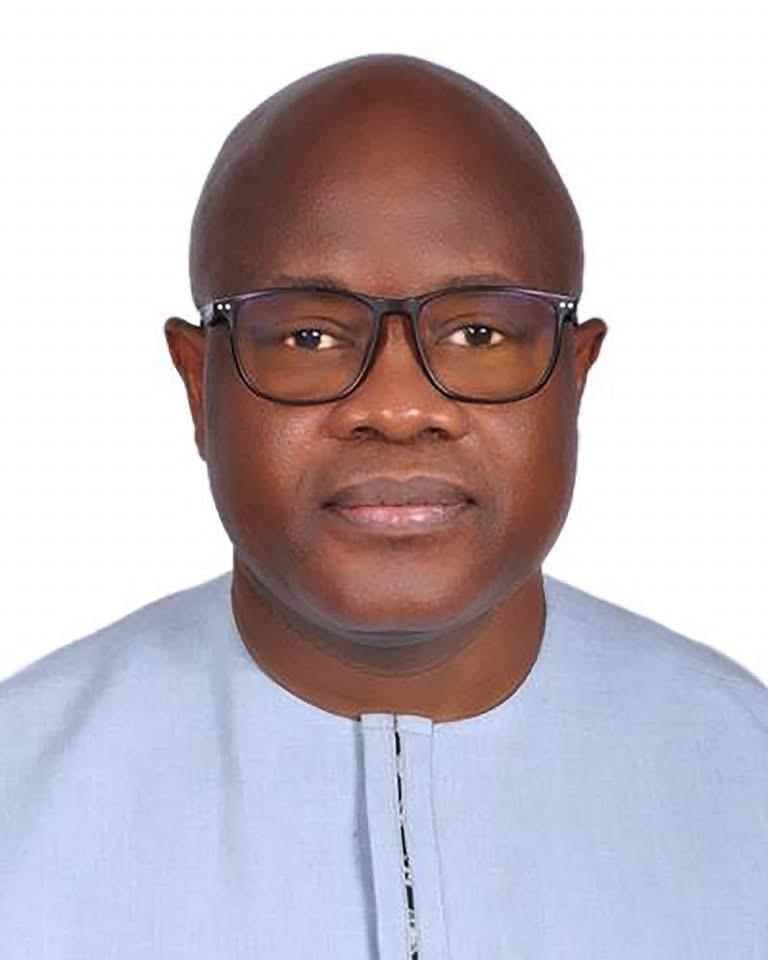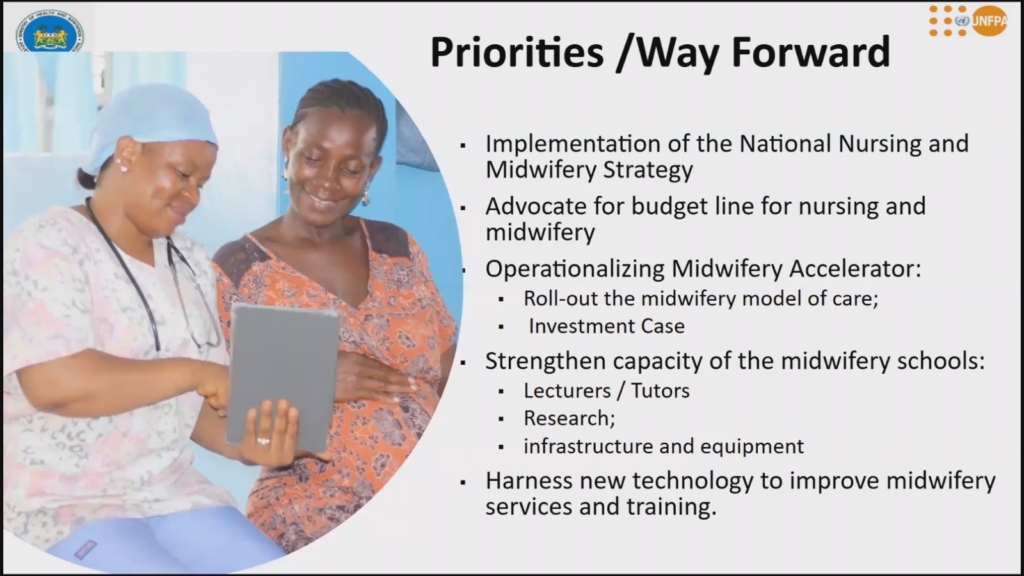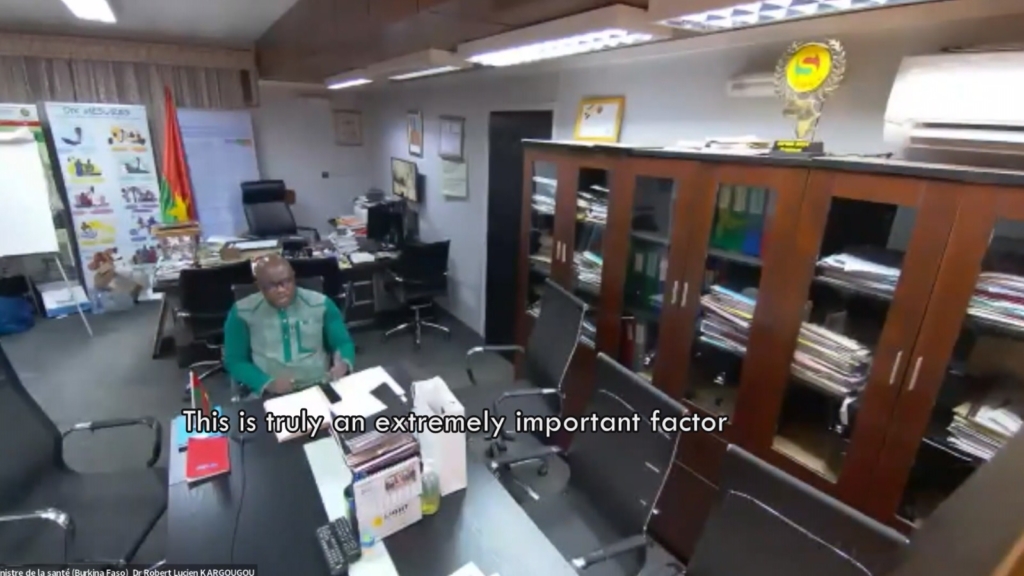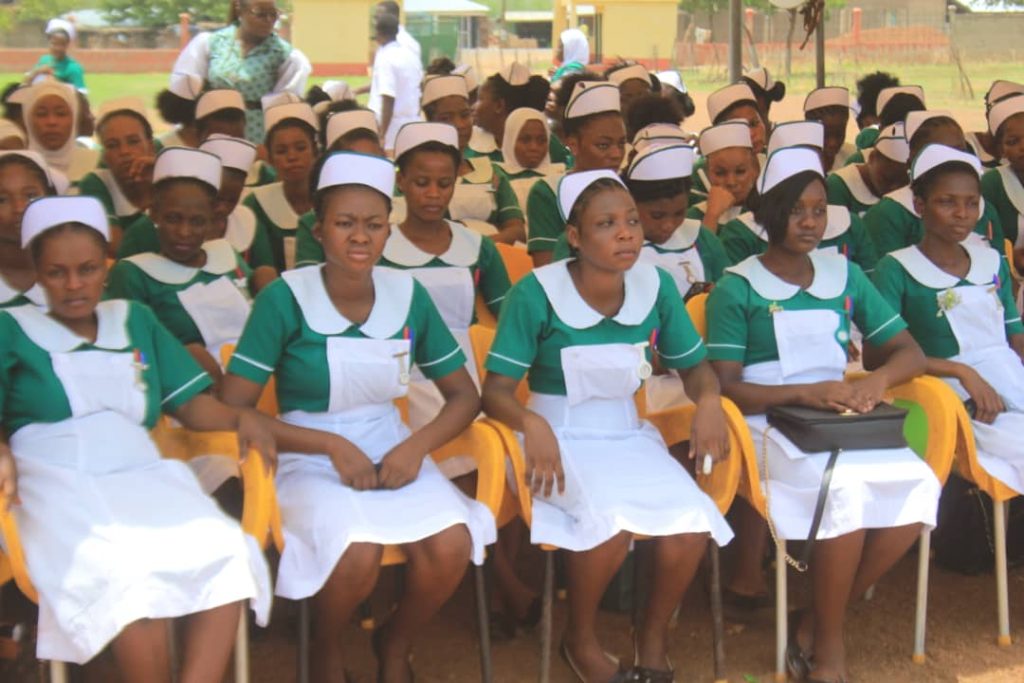Reflecting on the global theme, “Midwives: Critical in Every Crisis,” to celebrate midwives on the International Day For Midwives, the government of Burkina Faso has said it has taken strategic steps to reinforce the country’s healthcare system.
According to the Burkinabe Health Minister, midwives are “wise women” and are often the first point of contact for women of childbearing age.
During a webinar organised by the UNFPA and Africa Media Network for the Promotion of Health and Environment (REMAPSEN), Health Minister Dr Lucien Jean Claude Kargougou outlined five key measures introduced to improve the quality of healthcare delivery nationwide.

The Burkinabe Health Minister said “in Burkina, for almost ten years, the government has allocated a two-figure budget to the Ministry of Health. And despite the humanitarian and security context that commands the funds to be redirected to the defense of the country, the government has set up, under the vision and leadership of His Excellency Captain Ibrahim Traoré, about 12% of the state budget to the Ministry of Health. This is truly an extremely important factor, which is actually the result of the other actions.

“And I would like to note, as another major action, the significant increase in the recruitment of healthcare workers for their deployment throughout the country. For example, 20 years ago, when I was still the head doctor of the district, there was only one healthcare worker for the entire health district, with a population responsibility of a little over 150,000.
As I speak to you, the forty health centres of social promotion each have at least one or two healthcare workers. And at the medical centre with surgical antennas, we have about fifteen healthcare workers. This is an example that shows the massive recruitment that has been made and also the deployment because the health district I am talking about is located more than 350 km from Ouagadougou, in an area that is not easy to access.”

“I would also like to mention the strengthening of the capacities of the training schools, the establishment of the SONU network, including the training of general practitioners in essential surgery, which allows them to make caesarean sections in isolated areas.”
The UNFPA Regional Director for West and Central Africa, Dr Sennen Hounton, called for a paradigm shift in healthcare to address the ongoing challenge of maternal mortality, emphasising the urgent need to scale up midwifery training across the sub-region.

“In any country, are we engaging those political leaders at that time, so that in their manifesto, they prioritise already women and girls’ survivors? This is on all of us technical and financial partners to engage local political actors, so that we prioritise right from before we compete and win elections, the political agenda.”
Other speakers from the region including, Cameron, Mali and Chad took turns to share their experiences, successes, and how they have surmounted challenges, as well as what is currently being done to sustain improved maternal, newborn, and child healthcare in their respective countries.
DISCLAIMER: The Views, Comments, Opinions, Contributions and Statements made by Readers and Contributors on this platform do not necessarily represent the views or policy of Multimedia Group Limited.
DISCLAIMER: The Views, Comments, Opinions, Contributions and Statements made by Readers and Contributors on this platform do not necessarily represent the views or policy of Multimedia Group Limited.


